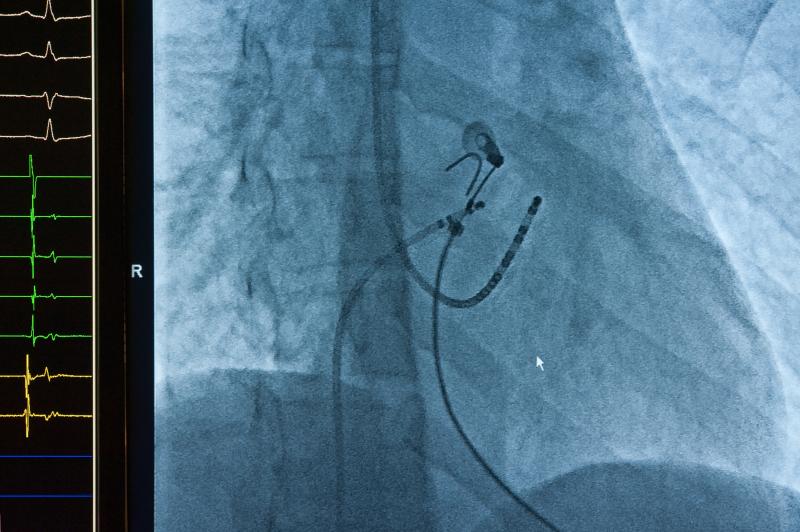
Catheter ablation reduces recurrence of any atrial fibrillation (AF) by 48 percent and symptomatic AF by 51 percent compared with drug therapy over 5 years of follow-up, reports a study. Catheter ablation patients also have significantly lower AF burden regardless of baseline AF type.
This study prospectively analysed CABANA* patients (median age, 68 years; 34.4 percent women) using a proprietary electrocardiogram recording monitor for symptom-activated and 24-h AF auto detection. The AF recurrence endpoint was any post-90-day blanking atrial tachyarrhythmias lasting ≥30 s.
The authors assessed AF burden using biannual 96-h Holter monitoring. Patients who used the CABANA monitors and provided 90-day postblanking recording were eligible for the analysis (n=1,240; 56 percent of CABANA population). A modified intention-to-treat approach was used to perform treatment comparisons.
Among 1,240 patients, 43.0 percent had paroxysmal AF. The catheter ablation group had significantly lower first recurrence of any symptomatic or asymptomatic AF (hazard ratio [HR], 0.52, 95 percent confidence interval [CI], 0.45–0.60; p<0.001) or first symptomatic-only AF (HR, 0.49, 95 percent CI, 0.39–0.61; p<0.001) over 60 months of follow-up. Baseline Holter AF burden was 48 percent in both groups.
Mean AF burden was 6.3 percent in the ablation group and 14.4 percent in the drug-therapy group at 12 months. Across the 5-year follow-up, AF burden was significantly lower in catheter ablation than in drug therapy patients. These findings were not sensitive to the baseline pattern of AF.
*Catheter Ablation Versus Antiarrhythmic Drug Therapy for Atrial Fibrillation trial